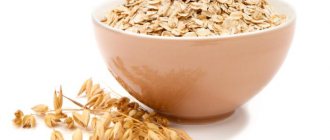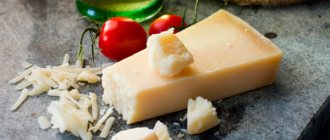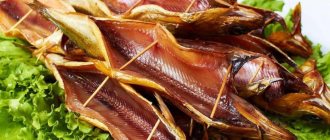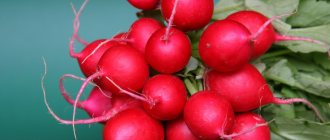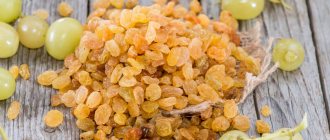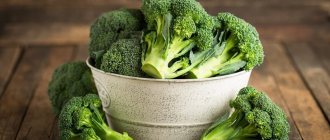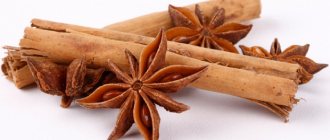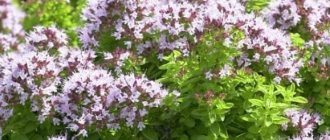From year to year, pharmacies offer more and more different products for nursing mothers: both synthetic medications and natural herbal preparations. A huge share of them are herbal teas to improve lactation. The vast majority of them contain fennel. Is this plant really capable of increasing milk supply? In this article, we will tell you about unique scientific research on fennel, the benefits of tea made from it, a method for preparing the drink yourself, and reviews from mothers.
What effect does fennel have on lactation?
Numerous studies have confirmed the stimulating effect of this plant on the production of female sex hormones in general and prolactin (the hormone responsible for lactation), in particular.
The proven calming effect of fennel is also important for women after childbirth. This plant also improves lactation in an indirect, non-hormonal way: after its use, small vessels dilate, blood flow to the mammary glands increases and, consequently, spasms are relieved from their ducts.
Fennel tea has a positive effect on both mothers and babies. Fennel increases the level of digestive juices in the gastrointestinal tract and slightly accelerates peristalsis (wave-like contractions of the intestinal walls), helping to relieve the child from colic.
Scientific research
Stimulation of lactation after childbirth is by no means a conjecture or assumption, but a fact confirmed by medical research. Thus, a study conducted in 2000 in Edinburgh, “Principles and Practice of Herbal Medicine,” showed an increase in milk volume in goats when administered fennel essential oil. In addition, the fat content of milk has increased. At another stage of the study, the ability of the components of this plant to pass into milk was tested. The offspring of a group of lactating mice to which the scientists added fennel to their food subsequently ate the fruit significantly more than other mice, indicating that the plant's chemicals passed into breast milk.
Experiments involving people are no less interesting. Thus, a study published in the same year 2000 by the Journal of the International Association of Lactation Consultants indicates an increase in milk volume in a group of five women. For 5 days they ate in accordance with their usual diet, and for the next 10 days the experimenters added 15 ml of 5% fennel infusion to their food. During these 10 days, the amount of milk continued to increase, and after stopping taking the infusion, it decreased to the initial level within 3-5 days.
Finally, the third study was conducted by Russian specialists from the Moscow Center for Family Planning and Reproduction. The first group of subjects regularly took tea with fennel fruits, the second followed their usual diet. The result exceeded all expectations: the first group of mothers managed to increase the frequency of breastfeeding by 3.5 times.
Celery during breastfeeding
The official instructions for using fennel fruits contain a contradiction.
The list of pharmacological actions indicates that the plant promotes lactation. And in the column “use during pregnancy and breastfeeding” there is a standard phrase that the product can be used if the benefit to the mother is higher than the risk to the fetus/child.”
On a note! This means that the plant has not undergone scientifically based clinical studies, and it is incorrect to talk about benefits for the mother.
On the other hand, for many decades, some doctors have been recommending fennel to nursing mothers, supposedly to increase lactation. But in this case we can also argue about the placebo effect.
A woman's milk production depends on many parameters. Compliance with breastfeeding rules plays a huge role.
As for liquids, any warm drink, from water to tea, helps to improve the separation of milk from the breast.
Find out what a nursing mother can drink{amp}gt;{amp}gt;{amp}gt;
We suggest you read: Black radish during breastfeeding
If your baby does not have enough milk and you are afraid that it will disappear completely, then fennel alone is not enough for breastfeeding.
Start working and eliminating errors in breastfeeding that lead to decreased lactation. For a detailed work plan, see the online course Secrets of Breastfeeding{amp}gt;{amp}gt;{amp}gt;
One of the types of greens that stimulate the production of breast milk is considered to be dill (fragrant), available at any time of the year. Despite the fact that it does not have pronounced lactogenic properties, when consumed daily it gives a positive result, meaning that you can forget about poor lactation. It is believed that even the smell of this fresh greenery can cause a rush of milk.
It is recommended to include it in the mother's diet from the 10th day after birth. Dill for lactation is used in dried form to brew tea, tinctures are made from its seeds, salads, first courses and side dishes are seasoned with fresh branches and stems, and mixed with other herbs into lactation cocktails.
It will be useful for mothers who are breastfeeding to use dill seeds for lactation; they contain the maximum amount of vitamins.
Parsley is a green and fragrant herbaceous plant, rich in acids (ascorbic, folic), B vitamins, keratin, potassium, magnesium and iron, as well as a leader in vitamin A content, the amount of which in it exceeds even that found in carrots. By consuming it during breastfeeding, the child will receive everything that is necessary for the stable functioning of the circulatory system, hair and eyelash growth, and strengthening bones. Like dill, parsley is added to food, infused for drinking, and mixed with other herbs in cocktails to improve lactation.
It is rich in riboflavin, amino acids (tyrosine, asparagine), carotene, vitamins K, E, A, and essential oils. Promotes the production of breast milk, helps restore the female body weakened by childbirth. The leaves, stems, and roots of the plant are eaten in baked, stewed, boiled and fresh forms, and they are also used to prepare lactation drinks.
Having studied the beneficial properties of greens and created a menu of dishes and drinks containing them, a nursing mother will not have problems with producing the required amount of milk or with the quality of the baby’s nutrition.
Tea with fennel is a godsend not only for a baby, but also for his nursing mother. In addition to the fact that fennel indirectly helps the baby’s tummy, entering the baby’s body through the mother’s breast milk, the plant can also increase lactation during breastfeeding. Since ancient times, women drank dill infusion so that milk would flow in large quantities. It calms well and increases the resistance of the body of a young, busy mother.
If you don't want to drink pharmaceutical fennel tea, make your own infusion. It may be stronger than an infusion for a baby. Pour two teaspoons of seeds into 250 ml of boiling water and wait until it brews. Drink 3-4 glasses of hot tea a day - milk will arrive in large volumes, you and your baby will become healthier and more cheerful, and stomach problems will disappear. Hair and nails will become strong and shiny, the skin will be cleansed, and the fat balance will be normalized.
The benefits of fennel for children are also noticeable if the tea or decoction of this plant is drunk not by the baby, but by his nursing mother.
In addition, a natural medicinal product will help the woman’s body, weakened by pregnancy and childbirth, to confidently go through the difficult period of breastfeeding.
Here are a few reasons why a woman should include fennel tea in her menu:
- it ensures an increase in lactation;
- does not change the taste of milk (which the child might not like);
- helps cope with colds and other diseases;
- well absorbed by the body, fennel and allergies are practically incompatible concepts;
- good for the stomach and intestines;
- calms, reducing the negative impact of the environment.
Before recommending fennel to women as a lactation enhancer, scientists around the world conducted many studies, primarily on animals, to ensure the effectiveness and safety of this plant.
Thus, in the UK in 2000, data from an experiment on goats was published: fennel fruits and seeds containing a large amount of essential oils used to feed the animals gave a significant increase in milk in the experimental subjects.
Positive dynamics from the use of fennel were also revealed by scientists’ long-term observations of lactating women.
Studies have proven that tea with fennel for nursing mothers is an excellent remedy that can significantly increase lactation, because this plant has a positive effect on the production of female sex hormones, which lead to the production of prolactin by the pituitary gland, the hormone responsible for breastfeeding.
Also, tea for nursing mothers with fennel has a calming effect on the nervous system, which is an indispensable aid for a woman who has experienced such stress as childbirth.
It is also worth saying that fennel dilates peripheral blood vessels. This promotes a rush of blood to the mammary glands, relieves spasm from the gland ducts themselves, and therefore has a positive effect on the production of breast milk.
It is impossible not to mention the fact that tea with fennel for nursing mothers also has some effect on the body of the baby who drinks breast milk. Thus, fennel, entering the baby’s body with mother’s milk, is able to gently improve the baby’s digestion. It stimulates the secretion of digestive juices, which, in turn, slightly stimulates the motor activity of his intestines. This effect of fennel on the child’s body helps, if not eliminate, then significantly reduce colic in the baby.
But at the same time, we should not forget that it is better not to give it to the baby himself, since lactation may be disrupted if the baby drinks any other liquid besides mother’s milk.
If we talk about the possible harm to the body from this tea, then the most important contraindication is pregnancy. Fennel tends to increase the tone of the uterus, so pregnant women are contraindicated to drink it.
Also, a contraindication to its use may be the tendency of a nursing mother to experience allergic reactions, which is due to the large amount of essential oils in its composition.
If a nursing mother has any heart problems, then it should also be used with caution, as it can cause tachycardia.
Fennel tea can be consumed by nursing mothers after consulting with a specialist, as it has a number of contraindications, like any other remedy. Only a doctor can tell you whether the mother needs such tea and, if so, which tea is best to choose and how to use it correctly so that it brings benefit and not harm to the mother and baby.
We invite you to read: Bottled cucumbers are convenient and profitable
Which herbal tea to choose
After childbirth, women are advised to consume this plant not in its pure form, but to drink it in teas to improve lactation. Pharmacy shelves are replete with various brands of such herbal infusions: the most famous are “Natal for nursing mothers” from the company HiPP (the average price in the Russian Federation is 280 rubles) and “Tea for nursing mothers” from (price is about 70 rubles). However, you can do without store-bought mixtures if you know how and from what to prepare a drink with fennel at home.
You should also remember several nuances of storing and using this plant:
- it is contraindicated for pregnant women due to the presence of anethole in the essential oil, which can increase the tone of the uterus;
- seeds should be stored in a hermetically sealed glass or porcelain container, always in the dark and dry;
- If the opportunity arises, you can buy Indian fennel: the highest quality, tasty and aromatic seeds are grown in the Indian state of Uttar Pradesh.
Possible harm
Like any other product, fennel can cause an allergic reaction in some people (fortunately, according to experts, this happens extremely rarely). In addition, it should be used exclusively for its intended purpose, and not as an ordinary drink.
If there is colic, prepare herbal tea for your baby; if the situation with the intestines and stomach has returned to normal, give up fennel.
Pediatricians fear that long-term use of this plant may result in the body becoming accustomed to such an assistant, and it simply will no longer be able to function normally without fennel.
Fennel Recipes to Stimulate Milk Production
From the fruits of this plant you can prepare not only various teas, but also cocktails, as well as some kind of nutritional supplements.
Classic tea for lactation
- water - 200 ml (cut glass up to the rim).
The seeds must be brewed in boiling water for 2 hours. Drink the finished infusion 2 tablespoons, preferably before meals. To sweeten, you can add sugar or honey if the child is not allergic to these products.
Phytocollection
- fennel seeds - 20 g.
- dill seeds - 20 g.
- fenugreek seeds - 20 g.
- water - 200 g.
Grind the seeds as best as possible, mix and brew in the specified amount of boiling water. Leave in a thermos for at least 3 hours. The finished infusion must be diluted with three glasses of water and drunk a glass half an hour before feeding.
Milk drink with fennel
- fennel seeds - 2 tablespoons;
- any milk suitable for mother and child - 1 glass.
Thoroughly ground seeds should be mixed with heated milk, add (optional) a pinch of nutmeg and salt. Leave and strain. Drink shortly before breakfast. You can make a fermented milk version of the drink by replacing milk with kefir.
Sour cream sauce
- fennel seeds - 1 tablespoon;
- sour cream of any fat content - 1 cup.
Mix the ingredients and simmer for an hour in the oven. Consume before bed and, if possible, warm.
How can fennel tea help a nursing mother?
Its healing effect depends on how well the tea is brewed.
For a child
If you use ready-made tea leaves, strictly follow the instructions included with it.
If you make your own herbal tea, follow these steps:
Crush the fennel seeds in a mortar and then pour boiling water over them. Try not to make a mistake with the proportions: 2-3 g of seeds per glass of boiling water.
Before straining the drink, let it sit for at least half an hour. It is a little more difficult to prepare a drink from the essential oil of a plant - the dose that needs to be diluted in a liter of water is very small, only 0.5 g.
For Mom
Tea for mom is prepared as follows: fennel seeds are poured with boiling water (a tablespoon of tea leaves will be enough for one mug), and infused for two hours. Drink a couple of minutes before feeding.
If the baby is not allergic to cow's milk and the pediatrician has allowed the woman to drink it, you can brew fennel seeds not with boiling water, but with boiled milk.
You can add a little cinnamon and nutmeg to the drink and drink it half an hour before feeding. This drink, according to experts, is effective for enhancing lactation.
Moms' opinions
Ekaterina: “After giving birth, as far as I remember, I always had little milk. At first I tried pharmacy granulated teas and special tablets, the price of which was not at all pleasing. Then I decided to try my luck with fennel. The milk really began to come in: first little by little, and then exactly as much as the baby needed. By the way, he never had colic. I’m sure it was precisely because during breastfeeding, the tea partially passed into the milk.”
Evgenia: “My breastfeeding daughter suffered from colic for the first three months after birth. First of all, we were advised to buy dill water (contains fennel essential oil), but we did not expect any effect from it. But the health visitor recommended regular fennel seeds. I brewed it in a water bath and drank 200 ml of tea per day. The taste is good, slightly sweet. The baby's colic has weakened and become less frequent. As for the milk: I can’t say that the milk flowed like a river, but there was clearly more of it.”
Olga: “I learned about treating colic with fennel when my son was already six months old. All the drugs purchased before did not work. But then they recommended dill and fennel seeds to me in time. Oddly enough, it worked. Now I see no reason to spend money on expensive teas from HiPP and I don’t advise you to.”
Natalya: “On the contrary, fennel gave us colic. I think this is an individual reaction of the body, so my review is not an indicator. Because I started drinking this herbal tea on the advice of a friend, which helped a lot.”
In general, most reviews present fennel as a much cheaper and yet effective alternative to expensive combination teas and dill water. This plant has shown itself especially well in the treatment of colic in infants.
Infusions and other products using fennel are an effective and safe remedy for improving lactation after childbirth, and are also successfully used against infant colic. However, you cannot use it “in advance” during pregnancy.
Encyclopedic article about increasing milk in nursing mothers with the help of a miracle plant - Fennel.
“He who sees fennel and does not pick it is not a man, but a devil...” Old English proverb
Breast milk is a real elixir of health for a baby. To date, no laboratory of infant formula manufacturers has been able to reproduce its unique composition. Each mother's milk is unique in its composition and meets the individual needs of your child. Breastfeeding brings a feeling of closeness and happiness to both. Breastfeeding also has significant advantages over bottle feeding, not only for the baby, but also for the woman’s health. Therefore, it is so important to preserve breast milk and, if necessary, increase it - increase lactation.
Note! Statistics show that 97% of women are capable of full lactation.
What is fennel?
Fennel is a perennial plant belonging to the celery family. Its leaves are very similar to dill leaves. For this reason, tea with fennel received its second name - “dill water”. In fact, the greens of this plant taste and aroma are very similar to anise.
There are two types of fennel found in nature: vegetable, which is mostly used in cooking, and ordinary, the healing properties of which have made it an indispensable assistant for many young mothers. It is the latter type, due to its unique effect on the body of a nursing mother, that has increasingly become used in the manufacture of products to improve lactation.
The plant from the umbrella family is similar to ordinary dill. Both the first and second representatives of the umbrella family have been known since ancient times as an excellent medicine for stomach ailments. Hippocrates and Avicenna used dill and fennel to fight gastrointestinal diseases. The roots, seeds and herbs were used in cooking: they were added to various dishes in fresh or processed form, and they were made into spices.
Fennel fruits for lactation. Research.
Buy fennel
You can visit our page /catalog/spetsii/fenhel.html
One of the available “mother’s helpers” is fennel, a decoction of its seeds has long been used to increase the amount of milk and is part of many well-known remedies for effective lactation. It is absolutely harmless and almost does not change the taste of milk. Naturally, such “helpers” are always under the close attention of specialists who study their beneficial properties and effectiveness of use. Fennel is no exception.
For example, a study published in 2000, “Principles and Practice of Herbal Medicine,” indicated that intragastric administration of fennel essential oil to goats increased the amount of milk produced and the fat content of the milk. 1 It was also shown that the offspring of lactating mice fed fennel fruit they ate them in larger quantities, which allows us to confirm the excretion of fruit components into milk 2.
The International Association of Lactation Consultants' Journal of Human Lactation published a study in 2000 that reported that a group of 5 breastfeeding mothers were given no supplements for the first 5 days, then supplemented for the next 10 days. 15 ml 5% fennel infusion. However, their diet and environment remained constant throughout the study period. Milk volume increased over a 10-day period and decreased over 3-5 days after discontinuation of drug 3.
Specialists from the Moscow Center for Family Planning and Reproduction (CPSR) studied two groups of nursing mothers. The first group took BIO-tea HiPP Natal, which contains fennel; the second group was not recommended any special drinks. As a result, it was proven that in the first group of mothers, the frequency of breastfeeding increased by 3.5 times.
However, it is not necessary to use expensive products to increase lactation offered by the manufacturers of such drinks. It is enough to know how to prepare fennel tea for lactation at home.
Composition and beneficial properties of fennel
Fennel is a real treasure trove of valuable substances.
- Vitamins A, E, PP, group B, a lot of vitamin C.
- Microelements: iron and calcium, magnesium and manganese, potassium and phosphorus.
- Fennel fruits are rich in essential oils.
- Amino acids.
- Probiotic inulin.
- Antioxidants.
This unique plant can have a positive effect on almost all systems of the human body.
At the same time, all its parts are useful: from roots to fruits.
- Fennel improves the functioning of the gastrointestinal tract: normalizes perilstatics, reduces gas formation, eliminates spasms (helps with colic in infants), and has an anthelmintic effect.
- The herb has an expectorant effect, which is successfully used in the treatment of cough.
- Improves metabolic processes, namely accelerates the breakdown of fats and sugar processing. The fruits also dull the feeling of hunger, which is used for dietary purposes. Being a natural diuretic, sweet dill removes excess fluid from the body, which also reduces body volume.
- Strengthens blood vessels, stimulates the production of hemoglobin.
- Has an antioxidant effect.
- It has a very beneficial effect on the nervous system, helping a nursing woman overcome stress and possible postpartum depression. If the mother consumes fennel, the baby becomes calmer and his excitability decreases.
- Sweet dill strengthens the immune system, has an anti-inflammatory and disinfectant effect (for example, helps with conjunctivitis, including in young children).
- Fennel also finds its application in gynecology: it has an estrogenic effect (since it contains phytoestrogen), due to which the menstrual cycle is normalized with regular use. The herb also helps women during menopause.
- The plant strengthens hair and prevents hair loss.
- Fennel essential oil has antifungal activity and can be used for sanitizing premises.
The benefits of fennel were known to ancient Greek doctors. A drink from this plant was given to children to improve their health.
Photo gallery: healing effects of fennel
Fennel eliminates stomach cramps, helps with colic even in infants Fennel has an expectorant effect, which helps cope with cough Fennel has a calming effect on the nervous system Fennel decoction lotions help with conjunctivitis
Video: beneficial properties of fennel (ethno-herbalist consultation)
The effect of fennel on lactation
Although fennel is not able to increase the level of the hormone prolactin in the female body, its antispasmodic effect has a positive effect on the lactation process. It dilates the peripheral blood vessels in the breast area and the milk ducts. This allows milk to flow freely to the nipple area, making it easier for the baby to suck and express.
Fennel expands the milk ducts, making it easier for the baby to suck.
The calming effect of sweet dill on the nervous system also has a beneficial effect on lactation.
Fennel in no way spoils the taste of breast milk, but, on the contrary, gives it a more pleasant taste and aroma. As a result, the baby sucks more intensely, which encourages the female body to produce even more nutrient fluid. Due to the beneficial composition of the plant, the quality of breast milk also improves: it is enriched with vitamins and microelements that are so necessary for the baby.
The positive effect of sweet dill on breastfeeding is noted in the journal of the International Association of Lactation Consultants. We are talking about an experiment that was conducted back in 2000. Several nursing mothers consumed 15 ml of 5% fennel infusion daily for a week (prior to this, the women had not taken any supplements for 5 days). As a result, everyone's milk volume increased and then decreased within a few days of stopping the drug.
Recipes for lactation drinks with fennel fruits
1
.
Tea with fennel for lactation “Classic”
Ingredients:
- Fennel seeds - 1 tbsp. spoon
- Water – 200 ml
Fennel seeds should be steeped in a glass of boiling water for about two hours. It is better to take approximately 2 tablespoons before meals. Honey or sugar can be used as a flavoring agent if the baby is not allergic to these components.
2.
“Fennel in sour cream sauce”
Ingredients:
- Fennel seeds - 1 tbsp. spoon
- Sour cream - 1 glass
Mix the ingredients and simmer in the oven for about one hour. It is better to consume at night and warm.
3.
Lactation cocktail with fennel
Ingredients:
- — 20 g
- Water - 200 g
All seeds should be finely crushed and pour a glass of boiling water. It is better to insist in a thermos for 2-3 hours. Dilute the infusion with warm water in a ratio of 1:3 and drink a glass 15-30 minutes before feeding.
4. Fennel tea for lactation with milk
Ingredients:
- Fennel seeds - 2 tbsp. spoons
- Milk - 1 glass
Mix the crushed seeds with warm milk, you can season with a pinch of salt and nutmeg. Infuse, strain and take before breakfast. By the way, milk can be replaced with kefir - you get a delicious spicy fermented milk drink.
Attention:
- Fennel is contraindicated for pregnant women, since the anethole it contains increases uterine tone!
- When stored for a long time, fennel seeds turn gray.
- Fennel seeds from the Indian state of Uttar Pradesh are considered one of the highest quality, sweetest and most aromatic.
- Fennel seeds must be stored in airtight porcelain or glass containers and absolutely in a dry and dark place.
Fennel - “in the world of interesting things”:
- Fennel seeds are mentioned in Egyptian papyri from 1600 BC. e., as an aphrodisiac. In Ancient Greece, it was added as an aphrodisiac to love potions. In Medieval Europe it was claimed that fennel could “induce an old man to love.”
- In some countries, bunches of fennel were placed above the entrance to the home in order to avoid the evil eye.
- Snakes love to rub against the stems of this plant. There is a legend that they do this in order to supposedly improve their eyesight.
- Restaurants in India serve fennel seeds in sugar at the end of the meal as a breath freshener.
Bibliography:
- Mills S., Bone K. Principles and practice of phytotherapy. Edinburgh, Churchill
- Livingstone, 2000.
- Shukla HS, Upadhyay PD, Tripathi SC Insect repellent properties of essential
- oils of Foeniculum vulgare, Pimpinella anisum and anethole. Pesticides, 1989.
- Ayers. Using alternative therapies to support breastfeeding. "J Hum Lact" 2000.
- Jackson P. Complementary and alternative methods to increase breast milk supply of nursing mothers in the NICU. J Hum Lact, 2010.
- Nikolov P., Avramov N. [Research on the influence of Foeniculum vulgaris, Anisum vulgaris, hawthorn oxyacanthus on lactation]. Izv. Meditsinskite Inst Bulg/Sofia dept. Biol Meditsinski sciences. 1951.
- Savelyeva L.F. Fennel - Voloshsky dill / Health and ecology. - 2007. - No. 7.
- Sokolsky I. A. Celery and fennel / Science and life. - 2006. - No. 6.
- Fennel - a candidate for the garden / ed. Drigo A.V. // Spicy and aromatic plants. — 2007. — No. 5
- Bestuzheva A. A. Aroma oils, fennel / Perfect Lady. - 2007. - No. 2.
A woman who is breastfeeding can and even should drink tea with fennel. It contains vitamins A, B, C, phosphorus, calcium, iron, magnesium and potassium. Promotes milk production and makes it more nutritious, improves the functioning of the gastrointestinal tract and, most importantly, reduces the likelihood of gas formation and helps strengthen the baby’s immune and nervous system. Fennel has a calming effect, which is important during lactation.
From what month?
Fennel tea can be consumed immediately after childbirth. It is better to buy special herbal tea with the addition of fennel at the pharmacy. Before use, carefully read the instructions. There is a huge selection of such teas and each has its own rules for preparation and inclusion in the diet. You should not abuse this tea, like all foods and drinks during lactation, it also has its bad sides.
What is the benefit for the mother?
Fennel is practically safe, is not an allergen and has a beneficial effect on all body systems. This is a good way to diversify a nursing mother's diet during lactation.
Why you should drink fennel tea:
- promotes lactation and fills milk with beneficial properties;
- prevents bloating and improves the functioning of the gastrointestinal tract;
- Serves as a preventative against colds;
- has a sedative effect;
- has a pleasant taste and aroma;
- strengthens the immune system.
Reference!
Fennel has been receiving only positive reviews from nursing mothers for many years. It is a “lifeline” in the fight against malaise during the recovery period after childbirth and painful colic of the baby.
In any form?
Fennel is allowed in the form of a decoction; it can also be added to dairy products and even desserts. It is advisable to grind fennel seeds and not eat them in their pure form, but consume them in moderation.
Recipes with fennel:
- Milk tea with fennel added.
Grind a tablespoon of fennel and pour warm milk, kefir or fermented baked milk. Let it brew for 2 hours, preferably consume before breakfast. - Sour cream sauce with fennel.
Add a tablespoon of chopped fennel to sour cream (1 cup) and bake in the oven over low heat for one hour. Eat one hour before bedtime.
Reviews
Among a huge number of mothers, fennel tea for nursing mothers is very popular. Reviews about this tea are in most cases positive, since many women claim that the tea really helped them improve lactation.
Reviews from women claim that lactation has really improved, the child has become calmer, and so has the mother. Many say that fennel tea not only helped increase the amount of breast milk, but also relieved the baby from colic. Children really are becoming calmer.
As you can see, reviews about tea are mostly positive, and if consumed in normal quantities, it is unlikely to be dangerous for mother or baby. Therefore, if you have problems with breastfeeding, then you should try tea with fennel, which in any case will be useful for both mother and baby.
Marina: “I give my tiny son Bebivita fennel tea.” Excellent product, helps very quickly. And most importantly, these are not pills or some kind of pharmaceutical chemicals.”
Elena: “My health visitor taught me how to make tea from fennel seeds. The child was helped almost immediately - before this he had not been able to cope with colic. As for me, I, of course, expected that my milk would become much more, and it really began to come, but little by little. This is probably how it should be. At least the child is eating well and gaining weight as expected for his age.”
Nadezhda: “Thank you to Grandma’s Basket for helping my daughter with colic, otherwise we were suffering from stomach pain after every feeding.”
Tags: feeding, breastfeeding, fruit, fennel
About the author: admin4ik
« Previous entry
Is it allowed to give to children?
Fennel is considered a safe product for the baby’s body, but some precautions in its use should still be observed. The most common reason why babies are given fennel tea is problems with the digestive system, in particular increased gas formation and painful colic.
At what age should it be included in complementary foods?
Children can drink tea with fennel in small quantities, starting from the second week of life.
As with tea for mothers, there are ready-made teas on sale, especially for babies. You can make a decoction yourself: add a teaspoon of fennel seeds, pour a glass of boiling water and let it brew for 2 hours, then dilute the decoction with a glass of water.
Start introducing complementary foods with one teaspoon and monitor the child’s reaction; if the child’s body does not show any warning signs, the dose of tea can be gradually increased to 50 milliliters, after the first year of life 150-200 milliliters per day.
Do not give your child more than the daily dose. This may cause the opposite effect, such as stomach upset or allergies.
Important!
Without appropriate indications, a child should not be given fennel tea. Check with your doctor first.
There are teas with fennel on sale.
The most popular and effective:
- Hipp.
Children's fennel tea. Quick to prepare, has a pleasant taste and aroma. It contains no harmful substances or preservatives and does not contain sugar. Can be given to a child from the first days of life. - Humana.
Fennel tea. Made specifically to combat colic and prevent dysbacteriosis. The composition includes maltodextrin and lactose, which are responsible for the development of bifidobacteria. Possible from the second week of life.
Benefit for the child
- Fennel tea is useful for gas formation, improves the digestive system and has a mild laxative effect.
- It strengthens the immune system and promotes the removal of mucus in diseases of the upper respiratory tract.
- Rich in vitamin C, which is essential in the fight against colds.
- Contains calcium, which promotes the development of baby's bone tissue.
Manufacturers
The demand for the product has led to the fact that many different fennel teas are presented on the baby food market, both in the form of disposable tea bags and instant mixtures.
This gives young mothers the opportunity to choose the product that she finds most useful and convenient to use.
Hipp (Hipp)
Herbal tea "Hipp" does not contain anything except fennel - no sugar, no dyes, no preservatives. This allows it to be used for babies who are only a month old.
One package of “Hipp” is five sachets, each of which is brewed with 200 ml of boiling water.
Humana
This baby tea is designed for children over one month old. There are no single servings, the packaging volume is 200 g.
The instructions recommend using one teaspoon of Humana (that is, approximately 4 g) to brew 100 ml of drink.
In addition to fennel oil, the drink contains caraway extract and lactose. This composition can cause an allergic reaction in some children, so pediatricians recommend starting to take Humana tea with caution.
Grandma's basket
This tea uses only fennel. The box contains two dozen portioned sachets. One of the main indications for the use of the drink is colic.
“Grandmother’s Basket” helps the baby cope with them, provoking a slight laxative effect (young mothers should keep this in mind and not worry if they discover small problems with the baby’s stool).
The amount recommended for consumption during the day for children under one year old should not be more than the amount of food eaten at one time.
Children over one year old can be given from 200 to 400 ml of “Babushkino Lukoshko” herbal tea per day.
Bebivita (Bebivita)
This product is granulated, contains fennel extract and dextrose (grape sugar) as a sweetener.
"Bebivita" is suitable for children from one month of age. For them, tea should be brewed at the rate of one teaspoon per 100 ml of water.
For children over one year old, a drink of the same concentration is prepared, but the amount of daily consumption is doubled.
Fleur Alpine
One and a half grams of dry fennel fruits in one portioned bag of “Fleur Alpine” are poured with 200 ml of water.
True, a child, while he is very small, cannot be given more than 50 ml of the drink per day. Starting from six months, the dose can be increased, gradually bringing it to 200 ml.
When drinking, the tea should not be hot, preferably slightly warm.
Possible danger
Fennel consumed in large quantities causes allergies (rash, itching, irritation).
Preparations based on its seeds have a choleretic, antispasmodic effect, create a slight antibacterial effect, and help increase the secretion of the digestive glands.
Fennel contains essential oil, which in large quantities can affect the body and cause the opposite effect, such as gastrointestinal disorders. There is an opinion that fennel increases the risk of sunburn. Aromatic tea should be consumed with caution so as not to harm mother and baby.
To stimulate lactation, a woman can and even needs to drink tea with fennel.
Fennel can be used immediately after childbirth. It is practically harmless, is not an allergen, and has a beneficial effect on all body systems. This is a good option to diversify a nursing woman’s diet during lactation.
Fennel seeds contain anethole, which is a phytoestrogen. It has the properties of the estrogen hormone and stimulates milk production.
For nursing mothers while breastfeeding
As for young mothers, experts note the stimulating effect of fennel on the production of sex hormones, including prolactin, due to the presence of which the lactation process occurs in the body.
The principle of the plant’s effect on the baby’s body is as follows: fennel contains substances that can relieve spasms of smooth muscles - eliminate painful colic in the intestines.
Increased gas formation, which leads to bloating of the child’s tummy, can also be overcome - the bubbles burst and leave the intestines naturally. So, gradually, it is possible to normalize the process of digesting food.
Indeed, in pharmaceuticals, aromatherapy, traditional and alternative medicine, fennel is deservedly considered a plant that can help with many diseases:
- has an antispasmodic and carminative effect for intestinal ailments;
- used as an expectorant for bronchial diseases;
- as an antibacterial agent that can strengthen the immune system;
- helps to improve the functioning of all organs of the gastrointestinal tract;
- strengthens the nervous system;
- treats sleep disorders and fights stress;
- normalizes metabolism in our body.
What are the benefits of eating fruits?
The stimulating effect of “medicinal dill” to increase the amount of breast milk has been proven by multiple studies. The seeds, fruits, dry extract, herb, and essential oil obtained from fennel have beneficial properties. If a woman constantly drinks tea with this plant, then when it passes into breast milk, it has a beneficial effect on the baby’s nervous and immune systems. Children become calmer and less excited.
Indications for taking fennel for breastfeeding:
The plant can rightfully be considered a universal healer. Fennel tea will also help with cholelithiasis, chronic pancreatitis, cystitis, pyelonephritis, conjunctivitis, upper respiratory tract diseases, stomatitis, insomnia, poisoning with alcohol and nicotine toxins, and will be useful for those who want to lose weight.
The beneficial properties of the plant are determined by its chemical composition:
How to make it yourself
We have already described how fennel tea is brewed. Now – about the “raw materials” with which you have to work.
If you have fennel fruits at your disposal, wash them thoroughly, finely chop them with a knife, and then dry them. As a result, the tea leaves are ready and can be used in the traditional way.
If you plan to make tea from fresh herbs, wash and chop them. Drying is not necessary: you can brew with boiling water, infuse, strain and use.
If you purchased plant seeds, never brew them immediately; be sure to crush them in a mortar to “free” all the vitamins, minerals and other useful components from their shell.
It is also very important to properly store fennel that you have not used immediately. Place it in a porcelain or glass bowl and keep it in a dry place.
If this is not done, you will have to buy new fruits, as the old ones will turn gray and absorb foreign odors.
Application in medicine and cosmetology
For skin
For furunculosis and pustules, a decoction is prepared to treat the skin. To prepare it, 2 tbsp. spoons of seeds are poured with 400 ml of hot water. The mixture is put on fire and cooked for 40 minutes. Fennel essential oil is also used to enrich creams, tonics, and milks in the amount of 4-5 drops of oil per 20 ml. basics.
Fennel oil is used to prevent the appearance of wrinkles and tighten the facial contour. Increasing the tone and elasticity of flabby skin. Treatment of acne, sluggish inflammatory elements. Normalization of complexion.
For colic
To get rid of flatulence and intestinal colic, you need tea, namely, pour 1 teaspoon of fennel seeds into 200 ml of boiling water. Leave for 30 minutes.
As an anti-cellulite agent
Fennel essential oil is used for these purposes. To prepare massage oil, add 10 ml of fennel essential oil to the base base (any vegetable oil is suitable for these purposes: almond, peach, olive or apricot kernels) – 3-7 drops.
To achieve the best effectiveness, massage should be performed every day for two weeks, then 2 times a week is sufficient.
For hair
The essential oil of this plant is also used to strengthen, heal, and improve the appearance of hair. The oil saves even the driest hair and treats dandruff.
To do this, add a couple of drops of fennel essential oil to your shampoo or conditioner while washing your hair.
Apply the oil in its pure form to the hair itself. For these purposes, you need to add 3-5 drops of this plant oil to your comb and comb your hair for 5-10 minutes.
For indigestion
How to brew? To prepare tea, pour 1 tbsp. spoon of fennel 150 ml. boiling water You can brew seeds, leaves, and fruits. You should drink it no later than half an hour before bedtime.
This tea will also be useful for pregnant women suffering from toxicosis in the first trimester. Half a cup of healing tea will relieve attacks of nausea and normalize digestion.
For coughs and colds
To do this, brew 3 teaspoons of chopped fennel with a glass of boiling water for half an hour and take 1-3 tbsp as an expectorant. spoons 4-5 times a day.
For coughs, you can also use fennel essential oil. Add 1-2 drops of oil to a teaspoon of honey and take it several times a day.
also prepare milk tea with fennel for coughs.
. For this, 2 tbsp. spoons of crushed fennel seeds are brewed with a glass of hot milk and left for 2 hours.
You can use kefir or fermented baked milk instead of milk. This drink will also be useful for stimulating lactation and preventing congestion during breastfeeding.
How to give to a baby
Before giving the tea to the baby, tea prepared from fennel is diluted in mother's milk (or in formula if the baby is bottle-fed). Give the baby something to drink from a spoon immediately before feeding.
Another way: fill a syringe without a needle with tea and milk and inject the liquid behind the baby’s cheek.
If tea is given for the first time, start with a couple of teaspoons per day, then gradually move to 5-6 spoons. Pediatricians warn that even tiny portions require caution, so be sure to monitor your baby’s well-being and make sure that he is digesting a new product normally, without allergic manifestations.
By the way, the reaction may occur 4-5 days late after drinking tea, so doctors advise not to add any new products to the children's menu at this time, so as not to disturb the “objectivity” of the picture.
If individual intolerance to fennel has not been identified, the use of tea can be safely continued: by six months, the daily norm can already be 50 ml.
Contraindications, side effects
The main contraindication for taking fennel teas is a tendency to allergic reactions or individual intolerance to the plant.
In addition, fennel is prohibited for consumption during pregnancy due to its ability to increase the tone of the uterus, which can lead to miscarriage.
An overdose of fennel can cause tachycardia, so women with heart problems should take it with caution.
Excessive consumption of the drink can lead to diarrhea.
When a nursing mother takes fennel tea, her baby may experience the following adverse reactions:
- allergic manifestations;
- problems with breathing, heartbeat;
- problems with the gastrointestinal tract - vomiting, diarrhea;
- lethargy, lethargy.
If any side effect occurs in a child, the tea should be stopped and the baby should be immediately shown to a doctor.
Contraindications to the use of fennel
Despite its many beneficial properties, sweet dill has a number of contraindications.
- In rare cases, individual intolerance occurs, which manifests itself in the form of an allergic reaction, nausea, and dizziness.
- Fennel should not be consumed during pregnancy, since its essential oil contains anethole, which increases the tone of the uterus.
- Excessive consumption of the drink can cause diarrhea.
- If a nursing mother has heart problems, it is better not to take risks by consuming the plant: it can cause tachycardia.
If a nursing mother is pregnant with her second child, then she is prohibited from consuming fennel, because it can increase the tone of the uterus
How does sweet dill increase lactation?
As a result of scientific research, it was discovered that the seeds of this vegetable stimulate the production of female sex hormones, including prolactin, the so-called lactation hormone.
The substances contained in sweet dill have an antispasmodic effect on the peripheral blood vessels and ducts of the mammary glands of a nursing mother. Thus, the milk freely approaches the nipple area and becomes easily accessible for the baby to suck or express.
Many mothers know about dill water, which helps with colic in a baby. But there is also fennel tea, which women use to improve lactation. What properties does this plant have? Does it really affect breast milk production? How to use grass correctly?
